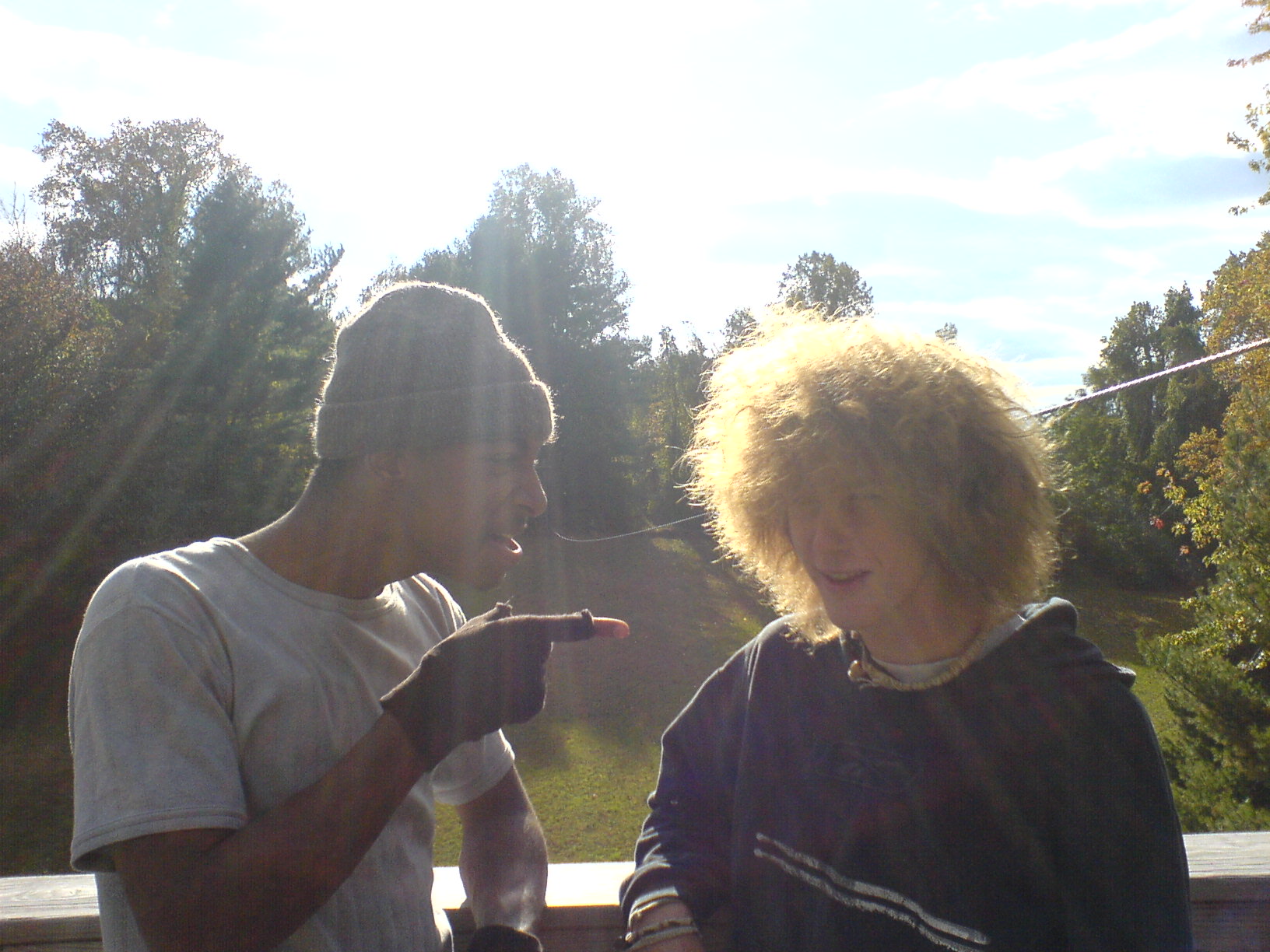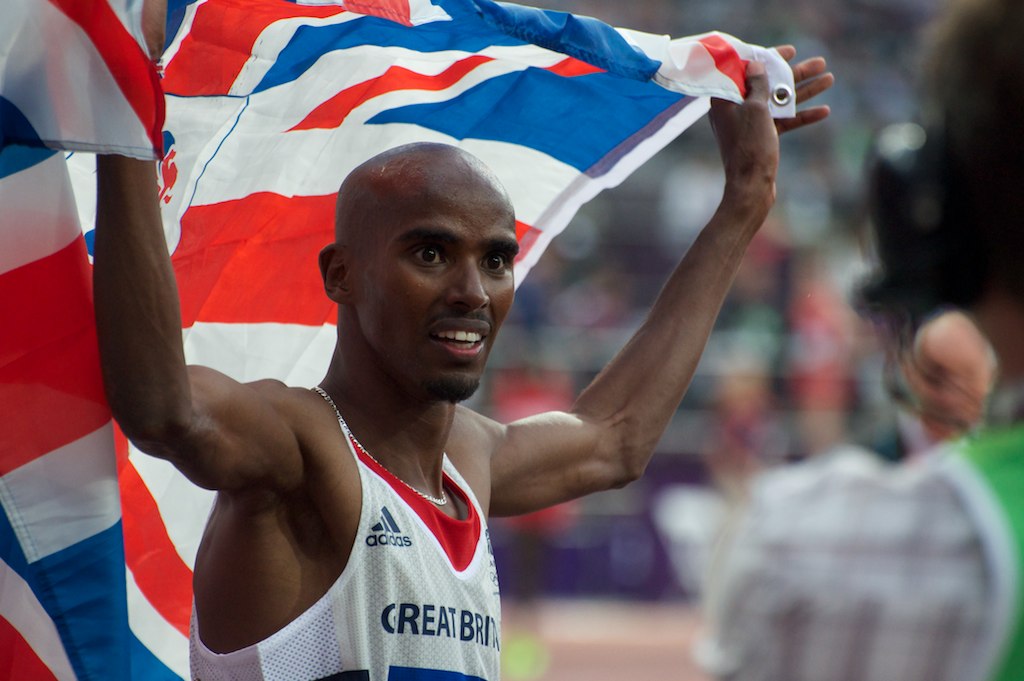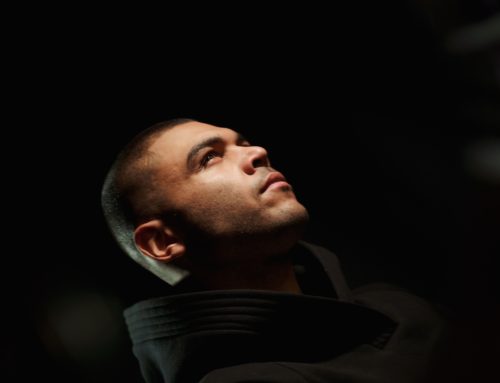The psychology of ‘us’ and ‘them’ – How did Brexit get so tribal?
June 30, 2016
I didn’t really want to write a BREXIT blog, but my blogging deadline was upon me and it really is the only subject in town. Everything else feels irrelevant. And surely psychology has something to say about the extraordinary circumstances we find ourselves in. In fact, psychology adds multiple perspectives, as these thoughtful analyses from the British Psychological Society demonstrate. I want to look at just one angle – how did it get so tribal and where do we go from here?
In with the in crowd
Though we often don’t like to admit it, humans are a tribal species. It’s part of what makes us so successful as social animals. One of the first things we decide about someone, within microseconds of meeting them, is “Are you in my in group?”. You might think that that means we are looking for significant differences, such as race or nationality, and to some extent that’s true. But it’s more nuanced than that. We could see two LA street gang members, for example, and not see much difference between them, whereas they would know from something like the brand of their trainers that they are sworn enemies. Similarly, they might see two middle-aged Brits in suits and assume they are in the same in-group because they are unaware of the distinctions between Blairites and Corbinistas or any of the multitude of tribes of the Conservative party. You could be outwardly very different but very much in my tribe or outwardly very similar and absolutely not.
Multiple in-groups
Of course, we don’t have only one in-group. We have multiple roles and in-groups which we move between depending on what we are doing at the time. Let’s suppose you are a proudly Cornish accountant, who supports Manchester United and belongs to the Liberal Democrats. It probably won’t matter to you where people come from or how they vote when watching a football match together and you won’t care which team people support when you’re at a political meeting.  Even people from our out-groups can join our in-groups in the right circumstances. Liverpool and Spurs fans, for example, would be in different in-groups when their teams play each other but would weep together during an England game.
Even people from our out-groups can join our in-groups in the right circumstances. Liverpool and Spurs fans, for example, would be in different in-groups when their teams play each other but would weep together during an England game.
We generally move between groups with relative ease. But not always. When our in-group is threatened, we identify with it – and defend it – more strongly. And research suggests that some people move between different groups and are more flexible in their identities than others, depending on their personality.
The personality dimension
One of the five major dimensions of personality is openness to experience – the extent to which we seek out new experiences and new ideas, explore different ways of thinking and seeing the world and question the values we grew up with. Research suggests that those who are more open to experience tend to be socially liberal, those less open tend to be socially conservative.
People who are less open to experience tend to value loyalty to their in-group more strongly than do those who are more more open. For some people, loyalty is a deeply held value – “we must look after our own” – whereas for others it is over-ridden by, for example, a desire to treat everyone equally. When these two groups talk about fairness, they mean different things.
Disgusting voters
These differences are deep-set and may even be hard-wired. For reasons no one seems to quite understand (see update below), people’s openness appears to be linked to our natural and very visceral disgust reflex.  We all feel disgusted by things like bodily waste or rotting flesh but some feel it more than others. The stronger the response, the less open people seem to be. Researchers can predict with 95% accuracy where someone sits on the liberal-conservative spectrum based on the strength of their disgust reflex.
We all feel disgusted by things like bodily waste or rotting flesh but some feel it more than others. The stronger the response, the less open people seem to be. Researchers can predict with 95% accuracy where someone sits on the liberal-conservative spectrum based on the strength of their disgust reflex.
Even more surprisingly, people can be induced to respond, temporarily, in a more conservative way (e.g. when giving opinions on things like gay marriage) by being exposed to disgusting smells or images. And yes, politicians have started to use this. In the states, a Republican candidate sent out leaflets impregnated with the smell of rotting garbage showing pictures of his ‘stinkingly corrupt’ opponent. In the Rwandan genocide, Hutu leaders called Tutsis cockroaches and, of course, the Nazis referred to Jews as vermin. This is why describing migrants and refugees as a swarm is so dangerous.
How does all this apply to BREXIT?
The first thing I want to stress here, is that I am not talking about the motivations of every leave or remain voter, just broad trends. The demographic breakdown of votes makes it pretty clear that many of those who voted to leave the EU were people who – perhaps with very good reason – felt under threat. In general, leave voters seem to be less prosperous, more marginalised and feel more powerless than remain voters.
Additionally, polling evidence shows that leave voters tend to be socially conservative. People who voted to leave were more likely to say that movements such as feminism, globalisation, multi-culturalism and the green movement were forces for ill, whereas remain voters saw them as forces for good. Given that socially conservative people value loyalty it’s easy to see how, for some, the referendum could be framed as an opportunity to protect a threatened in-group.
In the murkier depths of the Daily Mail comment section, people who voted to remain are described as traitors and there are comments advocating the use of razor wire and machine guns at the Channel Tunnel to deter migrants. Clearly some people’s in-group must be defended at all costs.
World turned upside down
Remain voters, including me, woke up to find we were in an in-group we barely knew existed. As psychologist Dr Paul Redford from UWE writes in the BPS analysis, suddenly we are the ones with less power, less self-determination. We are the ones under threat. Perhaps there is a useful psychological lesson here, but it’s a painful way to learn it. As several psychologists have pointed out, we are working our way through the bereavement curve, with most currently sitting somewhere between denial and anger. From a psychological perspective, suggestions that we get over it and move on are about as useful as telling a depressed person to pull themselves together.
There is a huge amount of in-group solidarity going on, especially on social media. We look for allies, identify more strongly with each other and we have found our out-group. The stronger the in-group identification, the harder it is to identify with people in the out-group and the more they become ‘the other’. I know people who cannot bring themselves to speak to family members who voted out. I’m finding that I have a fairly visceral reaction to houses that still have a Leave poster in the window. And we’re the ones who are, on average, more likely to be open, more inclusive of people with different values.
We’re all on the side of ‘right’
No one believes they’re on the wrong side, in the wrong group. If they did, they’d change side. We generally like to believe we are good people. Even when we do bad things, we can excuse them if they are for the greater good, no matter how extreme. People don’t join ISIS because they’ve decided to be evil. They join because they identify so strongly with a cause, and their in-and out-groups have become so polarised, that they can justify their actions to themselves. Presumably the same is true of people who are currently shouting abuse at foreign-looking people and vandalising Polish cultural centres.
Tolerating the intolerant
I’m not suggesting that we should tolerate abusive or criminal behaviour. But we really should be aware that behaviour is the only thing we can police. People can and will think whatever they like.
Coincidentally, I wrote last month about the difficulty of persuading people to change. I’d reiterate a key point from that blog here: the more confrontational you are, the more resistant the other person becomes and the less likely they are to change.  As a psychologist, I can think of no circumstances where the ideal way to facilitate change would be to tell people – loudly, condescendingly, sarcastically – that they are stupid, ignorant, bigoted and wrong, particularly when they believe they have the moral high ground because they are demonstrating that highly-prized value (that we don’t really understand) in-group loyalty. They are looking after their own, which may even include us.
As a psychologist, I can think of no circumstances where the ideal way to facilitate change would be to tell people – loudly, condescendingly, sarcastically – that they are stupid, ignorant, bigoted and wrong, particularly when they believe they have the moral high ground because they are demonstrating that highly-prized value (that we don’t really understand) in-group loyalty. They are looking after their own, which may even include us.
The more we turn staunchly anti-immigrant leavers into ‘the other’, the more we reinforce the division between us. And yet that is exactly what we are doing, on social media, on TV, in the pub, in the office. It feels great, it makes us more connected, it gives us some feeling of power in a powerless situation. It is exactly what ‘they’ do to their ‘others’.
Where do we go from here?
Somehow we need to get back to a more inclusive society, where people don’t define their in-groups in such narrow terms. As unlikely as it seems right now, only four years ago, much of the country joined together to cheer on a Somali-born, British Muslim called Mohamed.  The broad smile of Mo Farah, draped in the Union Jack, symbolised a different definition of ‘British’ and suggested that we can broaden the way that we think of our in-groups.
The broad smile of Mo Farah, draped in the Union Jack, symbolised a different definition of ‘British’ and suggested that we can broaden the way that we think of our in-groups.
If we did it then, we can do it again. Unfortunately, it is likely to require some of the things we don’t have right now – strong, compassionate political leadership and a fair and honest media, for example. Perhaps as a tiny starting point, those of us who are naturally more open and inclusive could try to use that quality that we value so highly in ourselves and each other to stop characterising a significant chunk of British society as ‘the other’. If we want a more inclusive society, then they, too, are ‘us’.
I’m hoping next month to get back to normal and talk about work, but who knows where we’ll be by then.
Update 2018:
Research I’ve read since writing this blog suggests that levels of disgust, and consequently of conservatism, tend to be higher in societies which traditionally had more pathogens and risk of disease. It makes sense that you’d be less adventurous about which foods you eat and how open you are to strangers, if the risk of illness was higher. The open, curious people are less likely to have survived. It’s safer to be curious and open when the risk is low. So there’s an evolutionary basis for being conservative or liberal, with the caveat that that’s a spectrum, not a binary state, and there are layers of social conditioning on top of the genetic component.
Photo credits
UK: Rareclass
England fans: Damien
Disgust: Christoph Lenz
Scolding: Doug Tammany
Mo Farah: Jon Connell





Thank-you for a valuable article: Perhaps one way for remainers to get through the bereavement curve is to remember that the referendum was about the EU and not about immigration, Xenophobia and all the other things you/they may construct. In discussions I have had most people agree that the five or so campaigns run by various protagonists were aimed at tightly defined sections of the community; childish and irrelevant to many of us. The word “crass” is often used and I suspect that many people, me included, voted despite the campaigns and not as followers
Thanks Mike. The EU is such a complex subject that, in the end, people could make it be about whatever they wanted it to be about. I’m sure many people on both sides despaired of the negative campaigning by both sides. However, the leave side wouldn’t have run with immigration as such a major issue if it didn’t resonate with a substantial proportion of the electorate. You seem to be offering a consolation to remainers that many people on the leave side share their values, which I’m sure is true. My point is that actually some of them don’t, but that that makes them people with different values not the enemy.
An interesting article and I’ve sometimes wondered about what sort of personalities would be Leave voters and which would be Remain voters. I’m very familiar with the ‘Big 5’ personality theory and my conclusions were:
Remain voters are much more likely to be risk-averse and less change-oriented, preferring the comfort and safety of the familiar, decades-long membership of Europe. Perhaps more likely to be more introverted and more ‘neurotic’ (to use ‘Big 5’ personality terminology).
Leave voters are the opposite, much happier to take a risk and embrace change, by leaping off the cliff into a new and fresh life outside Europe, with new opportunities and a more global economic vision. Perhaps more likely to be more extraverted, less neurotic, and more experimental in outlook.
It’s interesting to look at both Boris Johnson and Farage, also Digby Jones, all of whom look to me to be considerably more extraverted than the leading Remainers.
A final point is that the Leavers will be looking for new ‘bed partners’ (e.g. new trading partners outside Europe) ……. always the sign of an extravert!
Interesting perspective, Andrew. I can see where you’re coming from but in this instance I’d argue the opposite. I don’t think Leavers saw themselves as taking a big leap into a bold unknown, but rather moving back to something more familiar. I think it was too much change and unfamiliarity that pushed some leave voters (one obviously can’t generalise about 52% of the population) to opt to get out of Europe. Nigel Farage’s Britain seems to be from the 1950s. I have more of a sense of people wanting to retreat to Britishness and familiarity rather than, for example, being very excited about working with the Chinese.
Given that both sides ran campaigns based on fear, I’m not sure what can be said about people’s neuroticism. I imagine there are people who voted out of fear of what might happen if… on both sides. And equally people who were confident and content about their choice.
Many thanks for your reply Caroline which is in fact very interesting and mentions some points I hadn’t thought of. Just for the record, I’m a reluctant Leave supporter (though not a UKIP voter). Also for the record, on Big 5 I’m:
O – highish – and not easily disgusted :-)
C – highish
E – highish
A – slightly high
N – lowish
Interestingly I know a chap who’s a staunch UKIP man and many of his friends and associates are East Europeans, Africans etc., and some of those people are also Leave supporters! Most interesting!